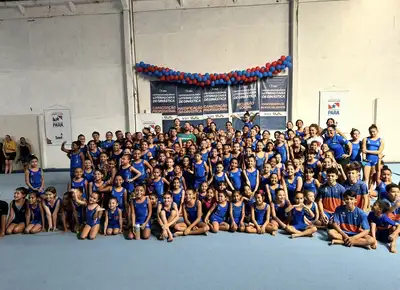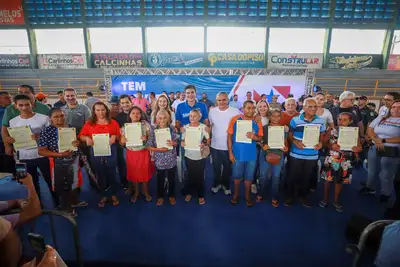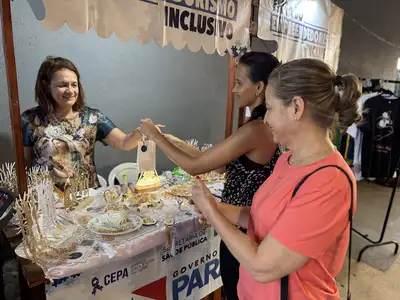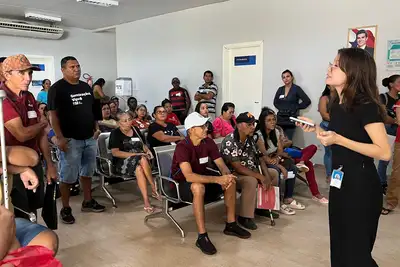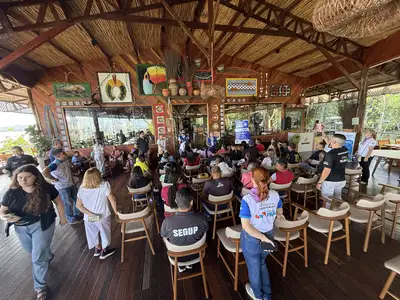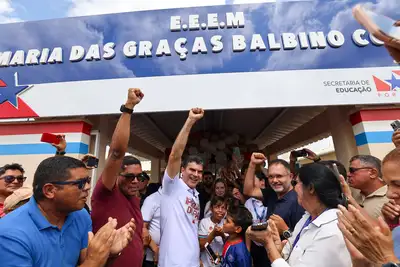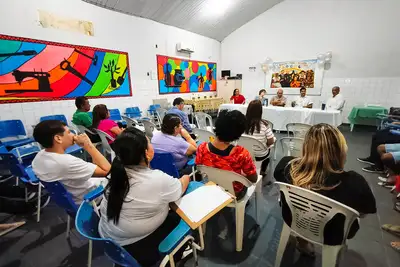Emater mobilizes fishermen from Belém for access to rural credit and increased production
The initiative is part of Emater's strategies for COP30
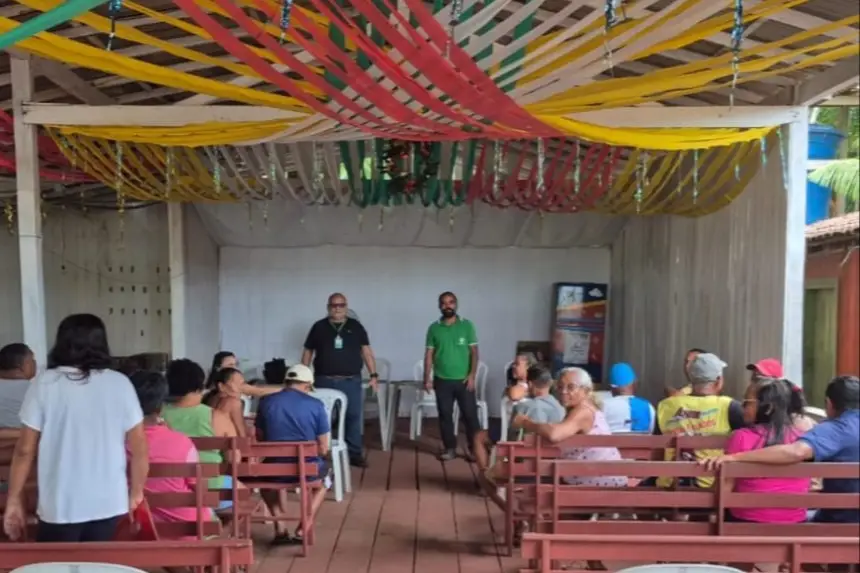
At least 60 families from three islands, north of the capital of Pará, Belém, may have access to rural credit in the coming months, based on projects developed by the local office of the Technical Assistance and Rural Extension Company of the State of Pará (Emater).
Residents of the federal settlements Ilha Nova, Jutuba, and Paquetá primarily work with floodplain açaí extraction and artisanal fishing. The most recent moment for sharing information and clarifications with the communities was on Thursday (15) in Ilha Nova, bringing together a team of specialists from the State Government and representatives from the Bank of the Amazon (Basa).
The objective of public financing through the A and Acredita lines, with individual amounts between R$ 12,000 and R$ 50,000, is to structure productive arrangements with reinforcement of cocoa and forest essences (such as andiroba and cupiúba) in the management of native açaí and provide tools for capturing species such as regional shrimp, douradinha, and piramutaba in the Guajará Bay.
"These lines of credit are fantastic for family farmers in the Metropolitan Region. They consider traditional activities of food security and significant profitability, in addition to a significant compliance bonus of up to 40% discount on what needs to be paid back. The wheel of socioeconomics turns in favor, resulting in panoramic sustainable development," points out the head of the local Emater office in Belém, Emerson Penha, an agronomist.
The manager emphasizes that Emater's prospecting strategy is part of the Institution's strategic plan for the 30th United Nations Conference on Climate Change (COP-30), to be held in the municipality in November: "These are integrated actions, with numerous layers of public policies, that promote human dignity, citizenship, food production, and supply," he summarizes.
For leader José Carlos Cardoso, 47, better known as "Rambo," from the Catholic community Menino Deus in Ilha Nova, the opportunity is unique: "Emater starts by helping with açaí management, which is something I don't feel ready or prepared to do with all the details: we clean, remove the underbrush, look for the tallest ones, but I know there are calculations, measurements that Emater guides. And then there's also the issue of credit: it's very welcome money that gives a boost," he says.
In the off-season for açaí, Rambo sustains himself with regional shrimp, caught with a matapi from the Mamão River and sold at the wharf in the Icoaraci district: "We depend on the tide - there are tides that give and tides that don't: in the 'flood tide', the big tide, the shrimp disappears; but in the 'ebb tide', the small tide, we can catch about 50 kilos of shrimp per week," he explains.
Text by Aline Miranda


